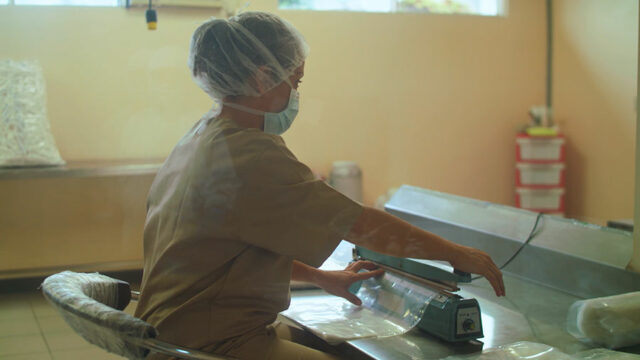In search of an alternative to promote the socioeconomic development of the country, the Ministry of Labor and Social Security (MTSS) presented the National Cluster Program (PNC). The initiative consists of a model that articulates the productive sectors to create more competitiveness and generate more and better jobs for the inhabitants of the six territories: Huetar Norte, Chorotega, Brunca, Central, Huetar Caribe and Central Pacific.
Silvia Lara, Minister of Labor and Social Security, explained: “The importance of cluster initiatives lies in the fact that they represent a new organizational paradigm with a long-term vision of productive activities in the territories, by articulating companies, public and academic institutions around of the driving economic activities of each territory ”.
According to the hierarch, the Program makes it possible to improve production chains, align the training of human talent according to the needs of the business sector, or make better use of public resources for productive development that translates into greater business growth.
How the PNC works

Clusters are collaboration networks that involve different actors, including private companies, academia and state institutions, as well as financial entities. Its purpose is to work on the continuous improvement of competitiveness and productivity and, therefore, on the permanent development of long-term competitive advantages.
According to a mapping carried out with the support of the Inter-American Development Bank (IDB), in the country 15 potential cluster initiatives were identified in all territories and in various sectors of the economy such as: biotechnology, cybersecurity, agribusiness, logistics, tourism, marine industries , among others.
Currently, more than 160 companies are linked to one of these cluster initiatives, which are in different stages of maturation: from a first agglomeration stage, where there are various initiatives (audiovisual, ICT and precision agriculture) to the mature cluster stage, where CRBioMed is located.
The IDB’s chief of operations in Costa Rica, Francisco Javier Urra, commented that “a cluster development policy facilitates the achievement of higher, sustainable and inclusive growth, thanks to a greater productive articulation between export companies, be they domestic or multinational, and the rest of local companies. This, in addition to increasing the innovation capacity of Costa Rican companies, favors economic integration in the region”.
Biotechnology for the world

Through the strategic alliances that are developed in the CRbiomed cluster initiative, member organizations have the possibility of promoting successful projects together. This is the case of Grupo TRISAN and Urëk, who work on the recovery of agro-industrial waste to achieve processes and materials for other uses with the support of research in specialized laboratories of the Technological Institute of Costa Rica (TEC) and the National Nanotechnology Laboratory (LANOTEC ).
This cluster initiative was founded five years ago by a group of entrepreneurs, scientists, professionals, members of the academy and representatives of the public and private sectors, in order to promote and optimize the biotechnology, medical device and life science sectors. life in the country.
Some of the national companies that make up this cluster initiative are: Grupo TRISAN, Speratum, Florex, Urëk, Funin, Establishment Labs, Marketplaza, Arias Law, MICITT, Clearleaf, Carao Ventures, BDA, Brome, among others, in alliance with the TEC , Lanotec, National University (UNA), the Foreign Trade Promoter (Procomer) and the Costa Rican Coalition of Development Initiatives (CINDE).

